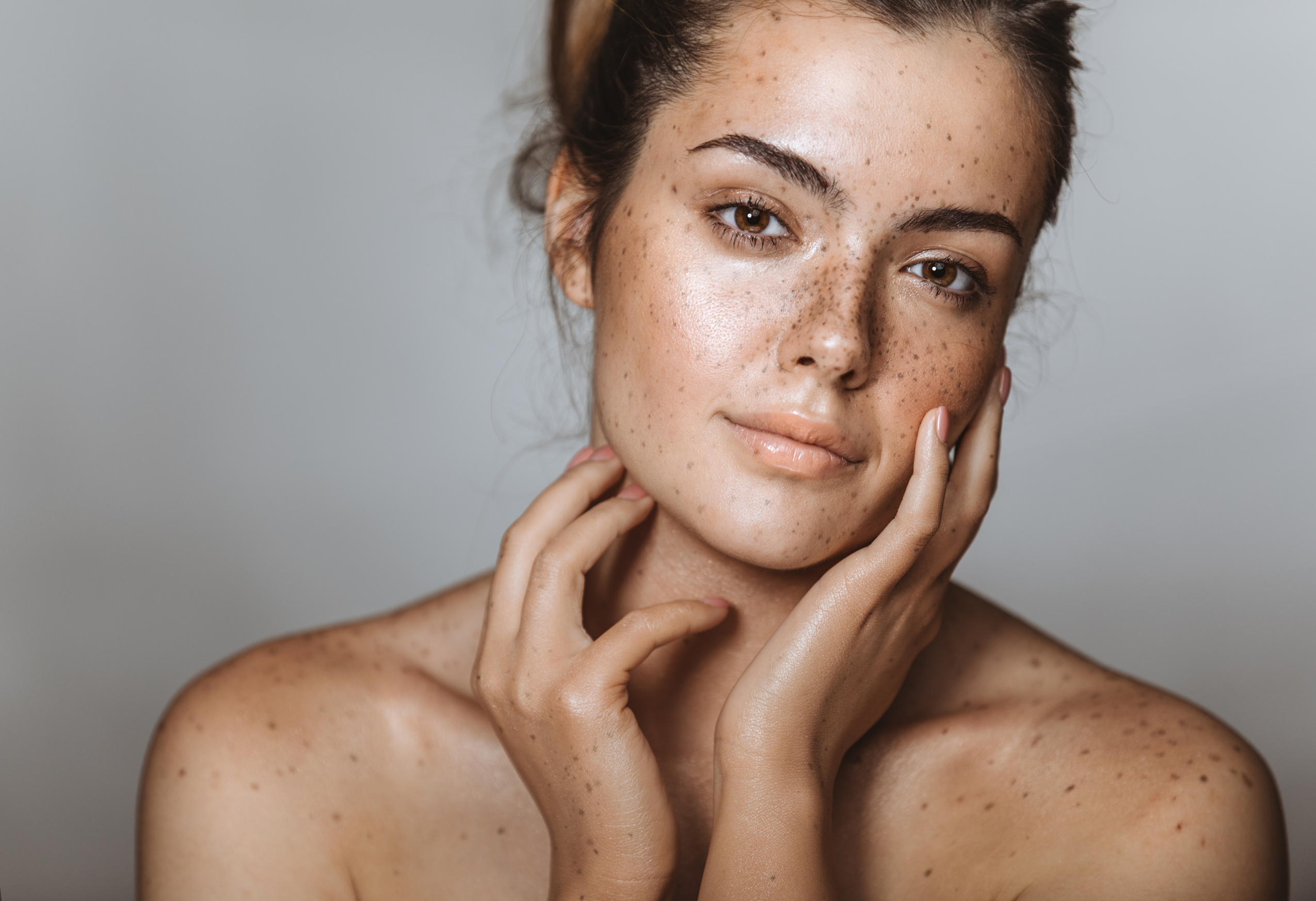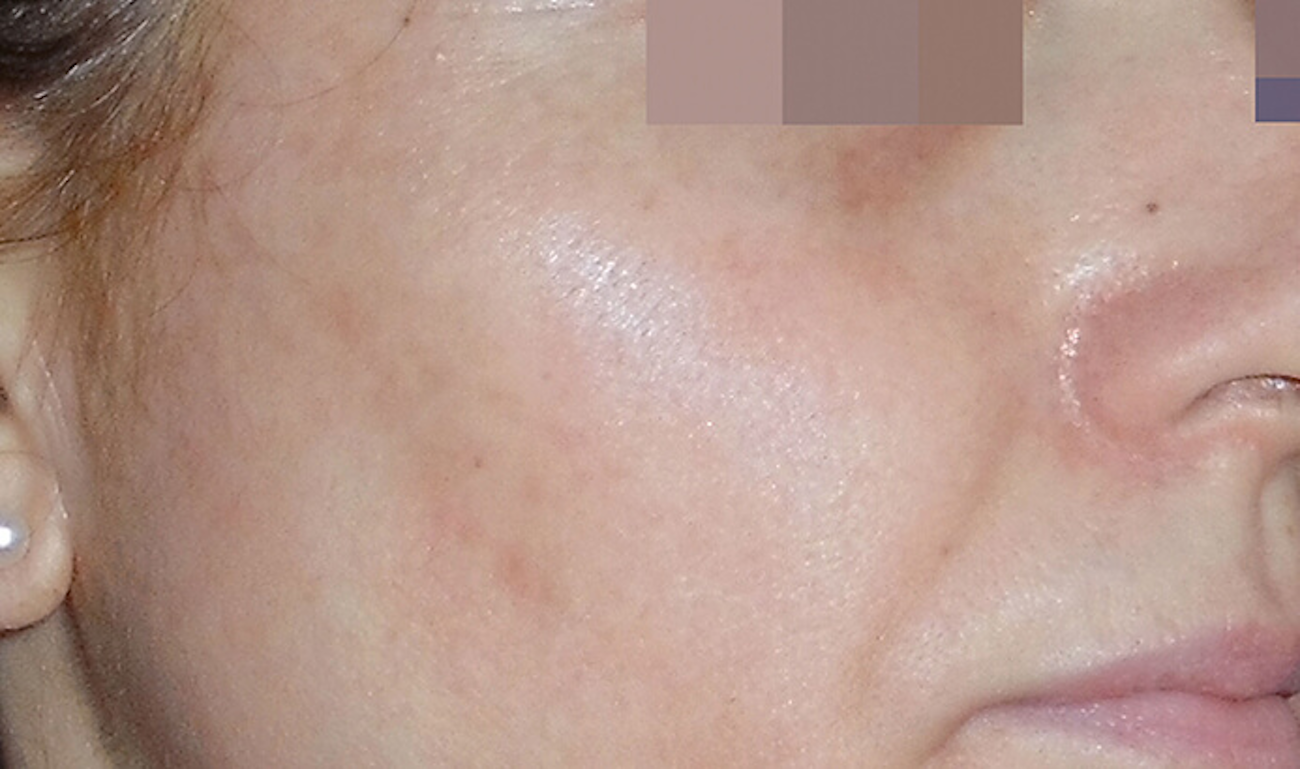
- Reduce the appearance of discolouration
- Brighten and even out your skin’s texture for a healthier, glowing complexion
- Smooth out expression lines, wrinkles, targeting challenging areas of ageing skin

Melasma, sun spots, age spots or hyperpigmentation causes and treatments.
Hyperpigmentation, also known as melasma, age spots, liver spots or sun spots, is a common skin condition that can occur on all skin types. This happens when more melanin is produced in some areas than others, resulting in darkened patches on the skin in comparison to lighter areas. These ‘sun spots’ usually occur on parts of your body that are frequently exposed to the sun, such as the face, hands, shoulders, arms and legs. There are many types of hyperpigmentation, but the following are the most common:
Hyperpigmentation itself is not a cause for medical concern, as long as there is no change to the skin other than in terms of the colour. Whatever may be the cause, age spots and melasma should be flat, and shouldn’t feel very different to the rest of your skin. If there are any other changes to your skin with sun spots, such as a raised texture, you can have a biopsy done to ensure that it’s nothing serious.
At our hyperpigmentation clinic London, we understand that you may wish to even out your skin tone for cosmetic reasons. We have a varied range of hyperpigmentation treatments that will be tailored to your individual issues.
Light therapy facial to help restore and rejuvenate your skin and for hyperpigmentation treatment.
A powerful depigmenting method that uses key organic acids to treat moderate-severe pigmentation.
Unique skin-regenerating treatment that uses nitrogen plasma technology to promote new collagen production and aid skin healing.
Chemical peel for reducing hyperpigmentation in the intimate area in just 1 session. We additionally have less potent intimate peels available which can be carried out on other delicate areas such as the underarms.
Targets all forms of deep, stubborn pigmentation using a unique blend of active ingredients and tyrosinase inhibitors.
An advanced laser skin resurfacing hyperpigmentation treatment to help improve the skin's texture.
Intense pulsed light treatment to help reduce pigmentation including melasma and sun spots.
A depigmenting treatment that visibly removes discoloration and prevents its reappearance.
Trichloroacetic acid-based chemical peel that removes dead skin cells and stimulates new cell growth.
Pigmentation-targeting peel with a complex formula that boosts epidermal renewal and regulates melanin synthesis for visible improvement in skin tone and luminosity.
Sign up to our newsletter to receive personalised special offers.
Prevention of hyperpigmentation should ideally start at a young age. If you layer up the sunblock religiously when your skin is still youthful, it might reduce the likelihood of developing sun spots when you’re older. It’s also advisable to follow a good skincare routine to avoid inflammation and irritation as these are common hyperpigmentation causes. Moisturisers, lotions and creams with an SPF are essential.
It’s possible to reduce the effects of hyperpigmentation. You may not be able to return your skin to its 20-year-old prime, but there are many modern methods that can help to improve your skin’s texture. Book a consultation at our hyperpigmentation clinic London today.






